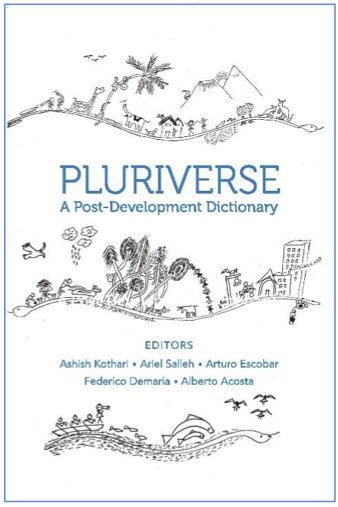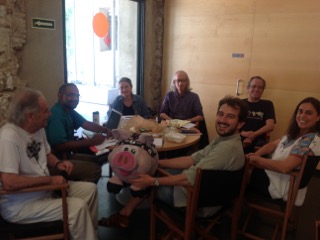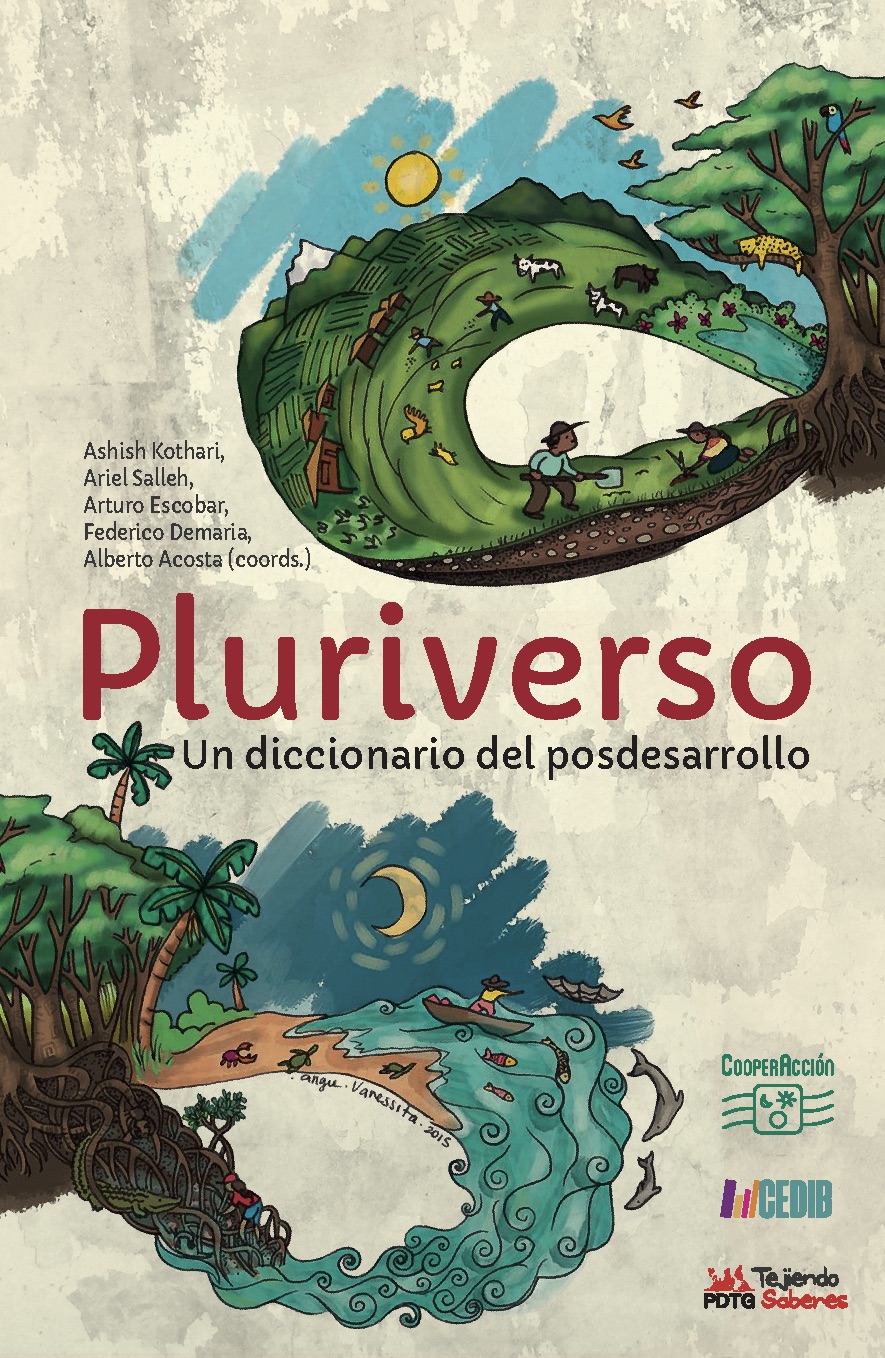|
Pluriverse A Post-Development DictionaryPluriverse: A Post-Development Dictionary contains over 100 essays on transformative initiatives and alternatives to the currently dominant process of globalized development, including its structural roots in modernity, capitalism, state domination, and masculinist values. It offers critical essays on mainstream solutions that 'greenwash' development, and presents radically different worldviews and practices from around the world that point to an ecologically wise and socially just world.
Edited by Ashish Kothari is with Kalpavriksh and Vikalp Sangam in India, and co-editor of Alternative Futures: India Unshackled. Ariel Salleh is an Australian scholar-activist, author of Ecofeminism as Politics and editor of Eco-Sufficiency and Global Justice. Arturo Escobar teaches at University of North Carolina, and is author of Encountering Development. Federico Demaria is with Autonomous University of Barcelona, and co-editor of Degrowth: A Vocabulary for a New Era. Alberto Acosta is an Ecuadorian economist and activist, and former President of the Constituent Assembly of Ecuador. New York: Columbia University Press & New Delhi: Tulika/AuthorsUpFront, 2019 "Pluriverse will nurture the mutual recognition, dialogues, and convergences without which 'another world' is hardly possible." – Edgardo Lander, Venezuelan Central University Caracas "The anthology brings together scholars with a deep grasp of philosophy, sociology, activism and policy. A wild generosity of ideas..." – Shiv Visvanathan, Jindal Global University, Ind Ashish Kothari, Ariel Salleh, Arturo Escobar, Federico Demaria and Alberto Acosta (eds.), (2019) Ashish Kothari, Ariel Salleh, Arturo Escobar, Federico Demaria and Alberto Acosta (eds.), (2020) Ashish Kothari, Ariel Salleh, Arturo Escobar, Federico Demaria and Alberto Acosta (eds.), (2020) 2021 Finnish translation - 2021 Hindi translation - 2022 French translation - 2023 German translation - 2024 French translation - In progress: German, Korean, Indonesian, translations -
|
||
|
|
|
CONTENTS Foreword Editors' Preface Editors' Introduction Development and its Crises: Global Experiences Africa Asia Europe North America Oceania South America Universalizing the Earth BRICS Circular Economy Climate-Smart Agriculture Development Aid Digital Tools Earth System Governance Ecomodernism Ecosystem Services Trading Efficiency Geo-Engineering Green Economy Lifeboat Ethics Neo-Extractivism Reproductive Engineering Smart Cities Sustainable Development Transhumanism Transformative Initiatives Agaciro Agdals Agroecology Alter-Globalisation Movement Alternative Currencies Arbitration for Sovereign Debt Autonomy Biocivilization Body Politics |
Buddhism and Wisdom-based Compassion Buen Vivir Chinese Religions Christian Eco-Theology Civilizational Transitions Commons Community Economies Comunalidad Convivialism Conviviality Cooperative Ecosystems Country Deep Ecology Degrowth Democratic Economy in Kurdistan Direct Democracy Earth Spirituality Eco-Anarchism Ecofeminism Ecology of Culture Eco-Positive Design Eco-Socialism Ecovillages Energy Sovereignty Environmental Justice Food Sovereignty Free Software Gift Economy Gross National Happiness Hinduism and Social Transformation Human Rights Hurai Ibadism and Community ICCAs Islamic Ethics Jain Ecology Judaic Tikkun Olam Kametsa Asaike Kawasak Sacha Kyosei |
Latin American and Caribbean Feminisms Liberation Theology Life Projects Mediterraneanism Minobimaatisiiwin Nature Rights Nayakrishi Andolan Negentropic Production New Matriarchies New Water Paradigm Open Localization Pacific Feminisms Pacifism Peacewomen Pedagogy Permaculture Popular Solidary Economy Post-Economia Prakritik Swaraj Queer Love Radical Ecological Democracy Revolution Rural Reconstruction Sea Ontologies Sentipensar Slow Movement Social Ecology Social Solidarity Economy Tao Worldview Transition Movement Tribunal on Rights of Nature Ubuntu Undeveloping the North Wages for Housework Worker-Led Production Zapatista Autonomy Postscript: A Global Tapestry of Alternatives |
© Ariel Salleh.


